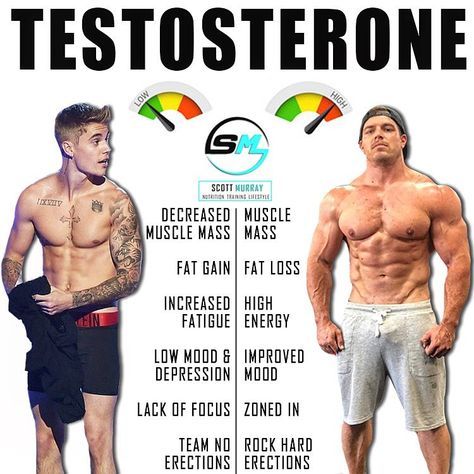
Testosterone is a hormone that plays a crucial role in men’s fitness and overall health. It is primarily produced in the testicles and is responsible for regulating various bodily functions. While testosterone is often associated with sexual health, its significance goes beyond that aspect alone. In this article, we will explore the importance of testosterone in men’s fitness and health, highlighting the role it plays in various aspects of well-being.
1. Muscle Development and Strength
One of the primary benefits of testosterone in men’s fitness is its role in muscle development and strength. Testosterone helps stimulate protein synthesis, which is essential for muscle growth. It also aids in the repair and recovery of muscle tissue after intense workouts, allowing for increased endurance and strength gains.
Low testosterone levels can lead to a decrease in muscle mass and strength, making it harder for men to achieve their fitness goals. Therefore, maintaining optimal testosterone levels is crucial for those who wish to build and preserve muscle mass.
2. Fat Loss and Body Composition
In addition to muscle development, testosterone also plays a significant role in fat loss and body composition. Testosterone helps regulate metabolism, allowing for efficient utilization of stored fat as an energy source. Men with higher testosterone levels tend to have lower body fat percentages and a higher muscle-to-fat ratio.
Low testosterone levels can lead to increased body fat accumulation, specifically in the abdominal region. This is known as visceral fat, which is associated with a range of health issues such as insulin resistance, inflammation, and an increased risk of cardiovascular disease. By maintaining optimal testosterone levels, men can promote a leaner physique and reduce the risk of obesity-related health complications.
3. Bone Density and Osteoporosis Prevention
Testosterone also plays a crucial role in maintaining strong and healthy bones. It stimulates bone mineralization and aids in the production of new bone tissue. As men age, their testosterone levels naturally decline, which can lead to a decrease in bone density and an increased risk of osteoporosis.
Osteoporosis is a condition characterized by weak, brittle bones, making individuals more susceptible to fractures and injuries. Adequate testosterone levels can help prevent bone loss and reduce the risk of osteoporosis, enabling men to maintain their mobility and independence as they age.
4. Energy Levels and Overall Well-Being
Testosterone levels have a direct impact on energy levels and overall well-being. Optimal testosterone levels contribute to a sense of vitality, motivation, and improved mood. Low testosterone levels, on the other hand, can lead to fatigue, depression, irritability, and a decreased quality of life.
By maintaining testosterone levels within the normal range, men can experience increased energy levels, improved cognitive function, and a better overall sense of well-being. This translates into better productivity, focus, and a more positive outlook on life.
5. Sexual Health and Libido
While the importance of testosterone extends beyond sexual health, it is worth mentioning its role in this aspect as well. Testosterone is the primary hormone responsible for regulating libido and sexual function in men. It plays a crucial role in the production of sperm and the maintenance of erectile function.
Low testosterone levels can lead to a decrease in libido, erectile dysfunction, and reduced sexual satisfaction. By maintaining optimal testosterone levels, men can promote healthy sexual function and enhance their overall sexual experience.
Conclusion
In conclusion, testosterone plays a crucial role in men’s fitness and overall health. From muscle development and strength gains to fat loss, bone density, energy levels, and sexual health, maintaining optimal testosterone levels is essential for men to achieve their fitness goals and lead a healthy life.
It is important to note that testosterone levels naturally decline with age. However, there are various lifestyle factors that can positively impact testosterone production, such as regular exercise, adequate sleep, a healthy diet, stress management, and avoiding excessive alcohol consumption and smoking.
It is advisable for men who suspect low testosterone levels to consult with a healthcare professional who can conduct appropriate tests and provide guidance on potential treatment options, if necessary. By prioritizing testosterone health, men can optimize their fitness and overall well-being for a better quality of life.

